click to dowload our latest edition
CLICK HERE TO SUBSCRIBE TO OUR NEWSLETTER

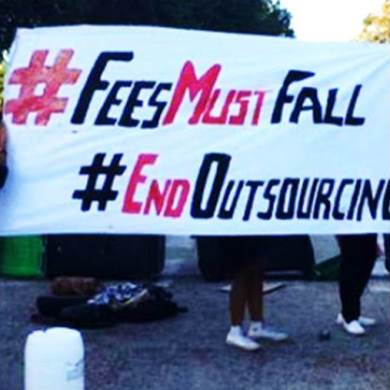
Published
8 years agoon
By
adminSUZANNE BELLING
Dani Hovsha, incoming chairman of the South African Union of Jewish Students, termed the campaign “a historic moment in our young democracy. It has informed the highest levels of our government that the voice of the youth will not be silenced, that the issues which plague the student population are of national concern and demand a national response,” she said.
The students achieved that response, assuring a 0 per cent increase for 2016. “It is a victory that everyone involved in the peaceful actions of this protest should be proud of. There is much work to be done to reach the vision of free education for all, but the demonstrations have opened up a dialogue, and made this goal an issue of national and international interest.”
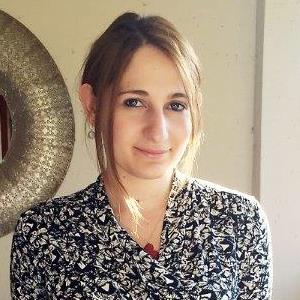
RIGHT: Incoming SAUJS national chair Dani Hovsha
Hovsha said there were incidents of which she was not proud “of violence and prejudice which threatened to delegitimise the good intentions I believe to be at the core of this movement.
I think that the choice to continue protests, following the attainment of the 0 per cent increase is also of concern.
Yet, I am hopeful that all students will soon be able to return to their studies, confident in the knowledge that we have been heard, that we have made a difference in the lives of so many and that we will enter our examinations this November assured of our return in February.”
Professor David Bilchitz, of the University of Johannesburg and director of the South African Institute for Advanced Constitutional, Public, Human Rights and International Law, said it was clearly important “that we move in South Africa to a situation in which individuals with the ability to do so are able to gain access to higher education irrespective of whether they can afford it or not.
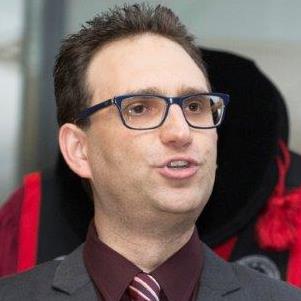
LEFT: Professor David Bilchitz, of the University of Johannesburg
“Students with less economic resources today often are excluded from university as they are unable to pay registration fees upfront or afford the tuition fees.
The National Loan System (NSFAS) is also often inadequate to cover the fees, living expenses and access to books of students and many have to struggle to study without knowing how they will pay the rent and with empty stomachs.”
Prof Bilchitz stressed that these conditions must change. “I support non-violent student protest that seeks to achieve these aims.
The victory of a no-fee increase, however, will be a pyrrhic one if the universities alone are left having to address the financial shortfall themselves: the funding gap will harm the world-class nature of our universities – preventing the acquisition of essential equipment, technology and staff – unless the government significantly increases its subsidy and we develop a sustainable and adequate system of funding for higher education that ensures access for all those who cannot afford it.”
Jonathan Levi, chairman of the Western Cape branch of SAUJS, said the organisation supported the view of the majority of students. “We feel it is unacceptable that many South Africans are unable to access tertiary education because of the high cost. We call on government to increase education subsidies in order to improve the current situation.”
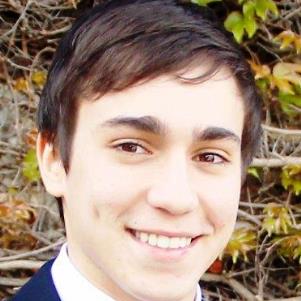 He said there were “quite a few Jewish students on the frontline and were heavily involved” (in the campaign).
He said there were “quite a few Jewish students on the frontline and were heavily involved” (in the campaign).
Jonathan Levi, chairman of the Western Cape branch of SAUJS
One such student was Ilan Price, son of Dr Max Price, vice-chancellor of UCT.
“He was arrested but released with no charges.” This was symbolic and a prime example of how students felt.
Levi cautioned, however, against violence, “which was not representative of the entire movement but the acts of a select few who tainted the positive motive of the movement”.
Professor Boni Meyersfeld, professor of law at the University of the Witwatersrand, said she was proud of the students “because they identified a real fracture in society and, with discipline, are trying to correct it”.
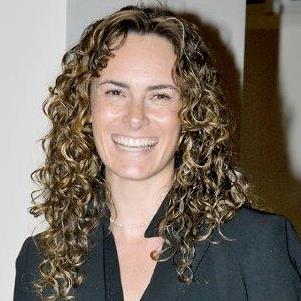
LEFT: Prof Boni Meyersfeld, professor of law at Wits
Meyersfeld said she was present at the university last Friday when the demonstrators started to burn things.
This was not the action of students, she said, “There is no violence among them. We can only speculate – we don’t know – that this is probably political.”
People needed to be able to afford education. “We understand how hard it is, especially for the black kids today. We have students who eat only every second day and who sleep in the library and these are not among the worst.”
She said even throughout the demonstrations, the students worked hard and held study groups at night.
Professor Stu Woolman, professor of ethics and law at Wits, feels students are “perfectly entitled to have protests and even make this uncomfortable for other members of the community. They have a special space that allows them to question the social contracts. It is important to understand their right to have this space. “
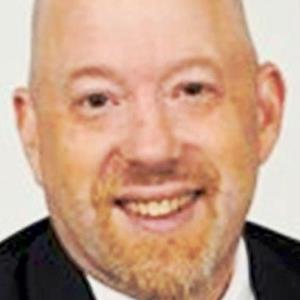 He says their demonstrations should “not be a nice cushy place 90 kilometres from where it is an issue” but on or near the campuses.
He says their demonstrations should “not be a nice cushy place 90 kilometres from where it is an issue” but on or near the campuses.
Professor Stu Woolman
While in agreement about the fees, however, he thinks this is not primarily about fees.
“I don’t think students and others such as the EFF, should be allowed to hold the community hostage and that at this juncture put the academic year in jeopardy.” He feels the fees should be frozen until all the issues are worked out.
He says he witnesses dissatisfaction among the black staff and students, which is not related to the university but something which is happening all over the world.
“It is not good for young people to be coming out of university in debt and with unsure job prospects.
“South Africa is in a tough enough space. We have a 19th century economy and many (whites) still live on a ‘plantation’ with servants.”
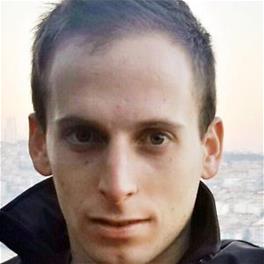 SAUJS’ outgoing national chairman, Natan Pollack, is a final year honours student in investment management at the University of Johannesburg.
SAUJS’ outgoing national chairman, Natan Pollack, is a final year honours student in investment management at the University of Johannesburg.
LEFT: immediate past national chair of SAUJS, Natan Pollack
Natan says he is “supportive of the underlying cause.
“However,” he said, “feel the method used to voice the cause is unfair on other students as it infringes on their writing exams.”
SAUJS condemned violence in any form in order to voice the cause, he said.
.
